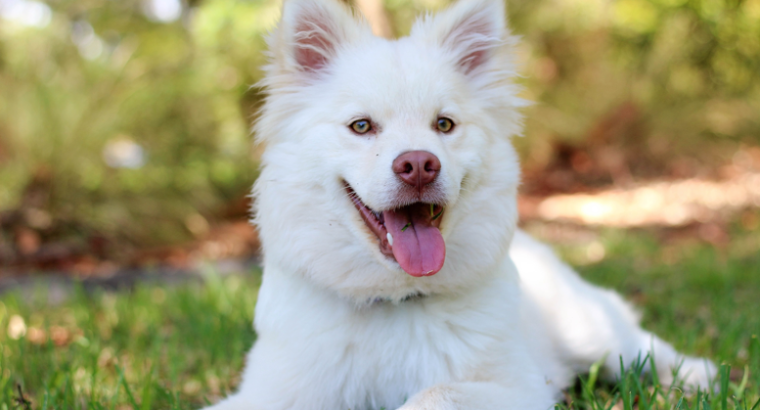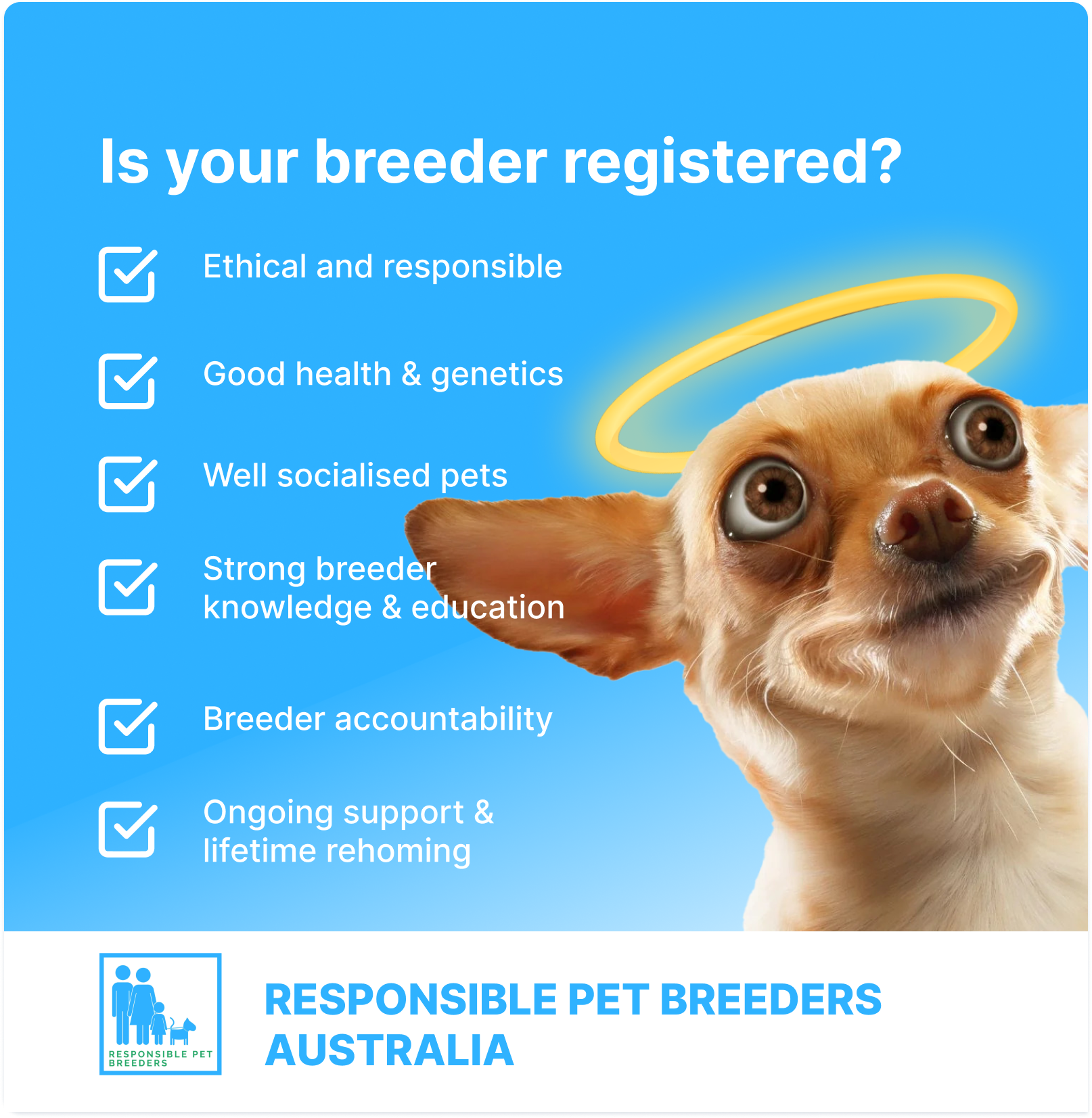Top 10 Questions to Ask Dog Breeders
- How big will they grow?

Getting a pup is an exciting experience. But, it’s important that the one that you adopt is ideal for your home, lifestyle and size of the family. This is why it is advisable to inquire about the size of both of the pup’s parents, and look into the average size for the particular breed.
Checking paw size of dog breeds can sometimes be a good indicator as to their fully grown size, with larger paws meaning that the puppy will likely grow into a larger size. If you are living in a small home or apartment getting a smaller dog breed may be more suitable for you.
However, if they’re a larger breed, it is recommended that you find out just how big they’re likely to grow and determine how much yard space they need to play in. You may also want to consider the size of dog crate that you should purchase and the amount of dog food to buy.
Petmate Two-Door Small Dog Kennel
Growth Considerations
- Paw size can help determine which dog will grow larger in the litter.
- Amount of daily exercise needed? As larger dogs may require more exercise.
- How energetic is this breed? Some smaller breeds may have higher energy.
- Are the dog’s parents DNA tested?
Breeders may conduct DNA tests on puppies and their parents. Testing allows them to examine the dogs for diseases that could be caused by DNA mutations. Mutations have the ability to hinder certain genes from functioning normally. This can potentially cause your pup to suffer from diseases and health issues later on in life.
Genetic health defects are passed down from a dog to its puppy in a similar way that physical attributes like coat length and colouring are passed on.
By DNA testing parents, breeders can determine the likelihood of the puppies developing these health problems and avoid issues in the future. You may wish to ask your breeder to provide a health guarantee or DNA guarantee.
Orivet Dog DNA Test | GENOPET+ Complete DNA Testing
RPBA Full Members Get Discounted Orivet DNA Testing
Health Considerations
- Is the dog cleared for genetic diseases?
- Have both parents been DNA tested?
- What colour are the parents?
- Has the puppy been socialised?
Socialising puppies is vital. It determines how well they can interact with other dogs, other pets and their human companions. You should ask your breeder how much have the dogs been socialised before and how this was done.
If you’re concerned that the puppies have not been socialised, assess their behaviour. Ideally, a well-socialised puppy shouldn’t be too shy or frightened around people.
Socialisations Considerations
- What is the personality of both mum and dad?
- Are the dogs happy and confident with you?
- Do the dogs love children?
- Do the dogs get along with other dogs?
- Do you need to go to puppy school for further socialisation?
- What have you been feeding the puppy?
There are two reasons why you should ask about your puppy’s current diet. One, you can determine the right dog food to give them so as to help them transition smoothly.
Two, you may want to continue feeding them the same food for the first few weeks. When you bring your puppy home, the drastic change in environment can be overwhelming. By sticking to the same diet, you may help them feel more comfortable. If you later decide to change their diet, the transition should happen slowly and whilst monitoring the effects.
Diet Considerations
- How much do I need to feed and how often per day?
- What is the best and healthiest food for my dog?
- What treats should I consider giving?
- Can you give a reference or are you a registered breeder?
The easiest way to know whether a breeder is reputable is to ask for references. Ask whether they can give you contact information of owners they’ve sold dogs to before. This can help you understand how positive other people’s interactions with the breeder has been.
Alternatively you can also ask if they are a responsible registered breeder? Does the breeder need to uphold any responsibilities to ensure that their dogs are brought up in a responsible and ethical manner. Does the breeder follow and uphold best practices and animal welfare standards?
Breeder Considerations
- Are you a registered breeder?
- What are your responsibilities as a registered breeder?
- What is your breeder number?
- How long have you been a registered breeder for?
- Can you provide a contract and health guarantee?
A professional breeder should be in a position to give you a contract detailing the terms of sale.
This document outlines what the breeder’s responsibilities are and what an owner has to do on his/her part. There are instances where owners become incapable of caring for the puppies. Should such situations arise, there should always be rehoming options provided to you.
The contract should also explains the breeder’s restrictions on the sale of their dogs, if any.
Handover Considerations
- Do you provide a health guarantee?
- What if the dog is not suitable for my kids and household?
- Do you provide rehoming assistance?
- Are the puppies vaccinated and dewormed?
When puppies are between the ages of 6 and 16 weeks, they receive several vaccines. All dogs being sold should already have had their first vaccination and microchip implantation.
Inquire whether the pup you’re planning to adopt has already been vaccinated.
If they’re not, it’s likely that the breeder may not be very experienced. So it may be a good idea to continue searching around elsewhere.
To confirm that the dogs are truly in good health, ask the breeder to show you paper work. They should present all documents for vaccinations and any routine medical checkups.
Vaccinations Considerations
- How many vaccinations has the dog had?
- How many more vaccinations are needed?
- When is the next worming due?
- Can you allow my own veterinarian to examine the dogs?
Depending on the breed you’re buying, dogs are a huge investment especially if they are pure-bred. You may choose to go ahead and adopt them once they provide you with a prior vet check certificate.
You might even want to have your own vet of choice examine the pup before you make the commitment.
- When can I take the puppy home?
Breeders can only allow puppies to be sent to their new homes after the 8-week mark. By this time, the pups should be well-socialised. This means that they’re old enough to interact with other dogs and humans.
However, not all breeders will offer puppies for adoption at this age. Some prefer to socialise them for a little longer, sometimes up to 12 weeks.
Approved Pet Carrier, Soft-Sided Pet Travel
- How can I contact you after taking the puppy?
Often, breeders have more experience taking care of dogs more than we do. So if anything goes wrong, you might want to contact them and ask questions. Responsible breeders won’t shy away from providing further help.
When you’re adopting or buying a dog, you’re making a decision that will have a huge impact on your life. Some dogs will require a lot of space, and will need plenty of exercise. But other different breeds may have far less demanding needs.
Portable Pet Dog Agility Training Exercise Tunnel
The best way to determine if a particular dog is right for is simply to ask your breeder questions. The information you get by asking these questions will help you give your new pet the care they deserve.
PetsForHomes readers get 7 days of free access to Puppy Dog Training at DoGoodDoggy.









